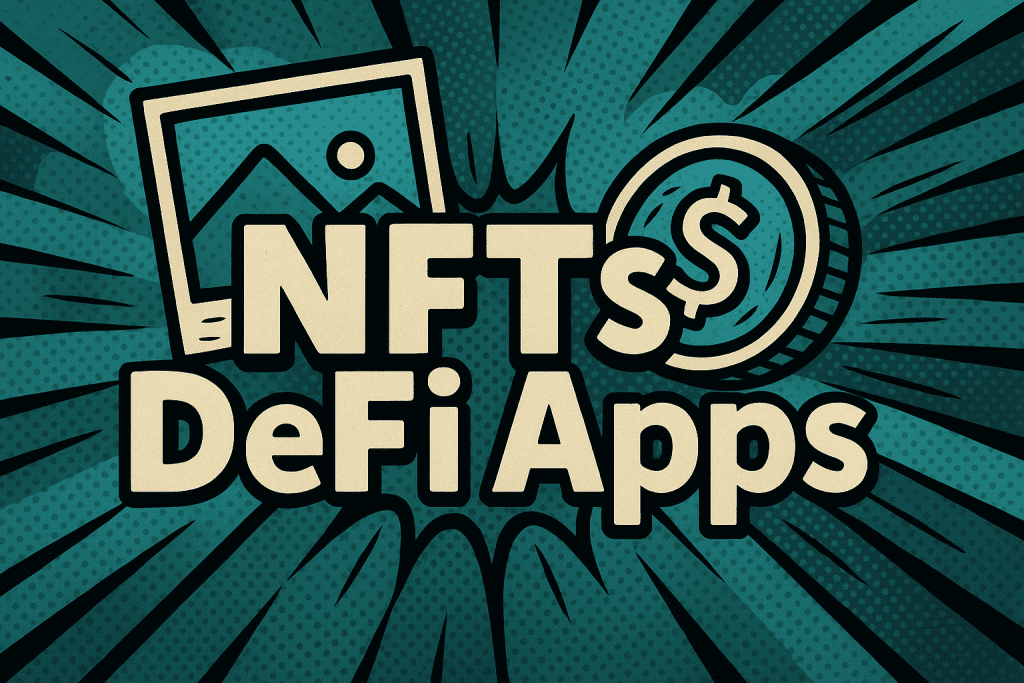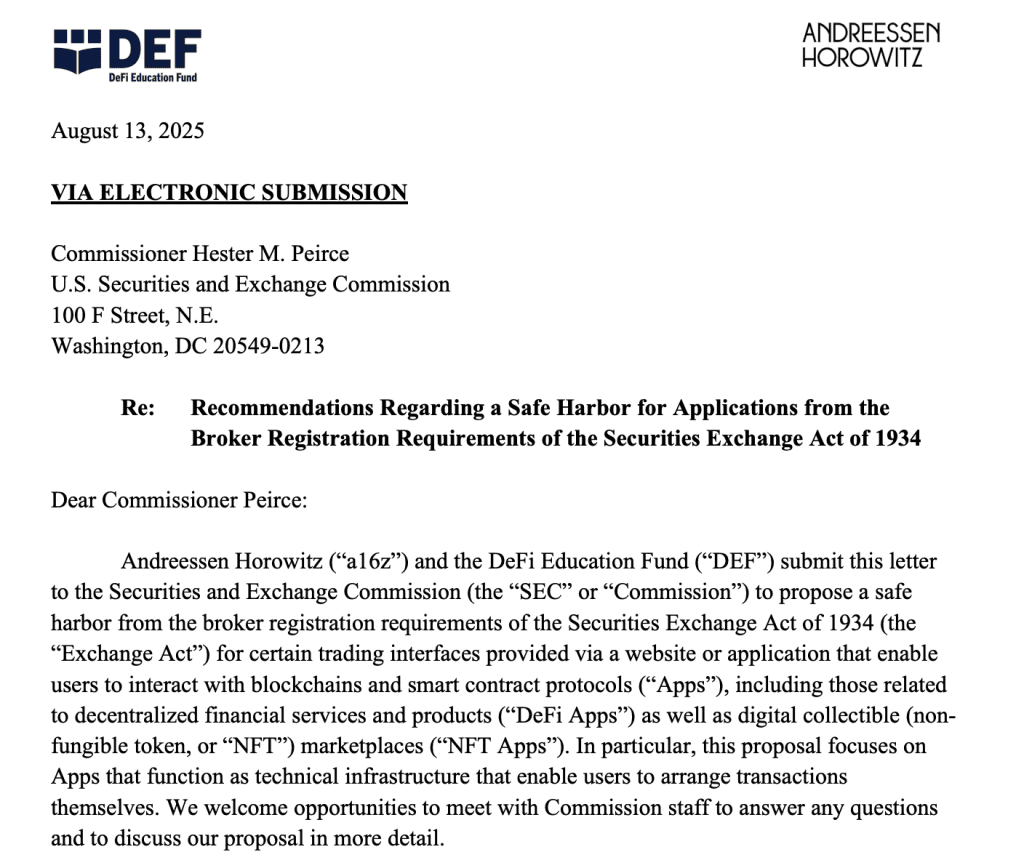Andreessen Horowitz (a16z) and the DeFi Education Fund are calling on the U.S. Securities and Exchange Commission (SEC) to create a formal “safe harbor” program that would exempt certain non-fungible token (NFT) and decentralized finance (DeFi) applications from the agency’s broker-dealer registration requirements.

In a detailed letter sent Wednesday to SEC Commissioner Hester Peirce – who heads the agency’s Crypto Task Force – he two organizations said their request builds on the recent recommendations from U.S. President Donald Trump’s Working Group on Digital Assets. That working group urged regulators to provide targeted relief for some DeFi service providers from having to register as broker-dealers, exchanges, or clearing agencies under the Exchange Act.
They also cited comments in July from SEC Chair Paul Atkins, who instructed agency staff to update what he described as “antiquated” rules that no longer align with the realities of modern crypto and blockchain applications.
The safe harbor proposal argues that only apps which do not create the types of risks the Exchange Act’s broker-dealer framework was designed to mitigate should qualify for relief. In such cases, a16z and the DeFi Education Fund contend that broker registration is “unwarranted and inappropriate.” They believe a safe harbor would deliver three main benefits: providing much-needed regulatory clarity for developers, preserving the SEC’s oversight powers for genuinely high-risk activities, and ensuring U.S. teams can innovate without fear of misapplied legal frameworks designed for an earlier era of finance.
This is not the first time a16z has pressed for such measures. In March, the venture capital firm sent Peirce a separate letter recommending an NFT-specific safe harbor and outlining how the agency could extend similar protections to airdrops and network tokens. The SEC, meanwhile, has maintained an active enforcement posture toward crypto companies, filing civil suits against entities such as Coinbase, Kraken, and Cumberland DRW for allegedly operating as unregistered dealers.

The groups’ latest appeal underscores a growing push from parts of the crypto industry to carve out regulatory space for low-risk, software-based financial applications, and to do so before ongoing enforcement actions further chill U.S. blockchain development.









